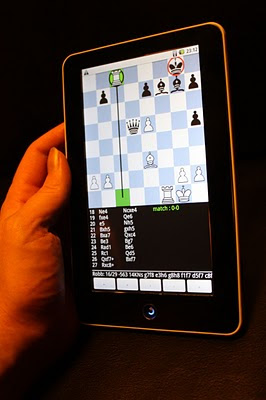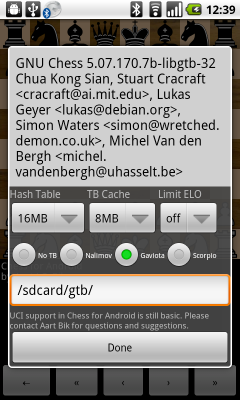I just released version 2.5 of Chess for Android at the Android market. Besides a few minor improvements, this release introduces the ability to play engine-engine matches automatically. To perform a match: (1) Long-press, import UCI engine, and select primary engine (or skip this step to play against the built-in Java engine), (2) Long-press, engine-engine match, and select secondary engine to start the match. This will play 10 games from random openings at the moves-per-second level selected. During the match, current standing is displayed and engine analysis output is shown at the bottom of the window. Afterwards, the full match annotated with engine analysis is stored in a PGN file.







